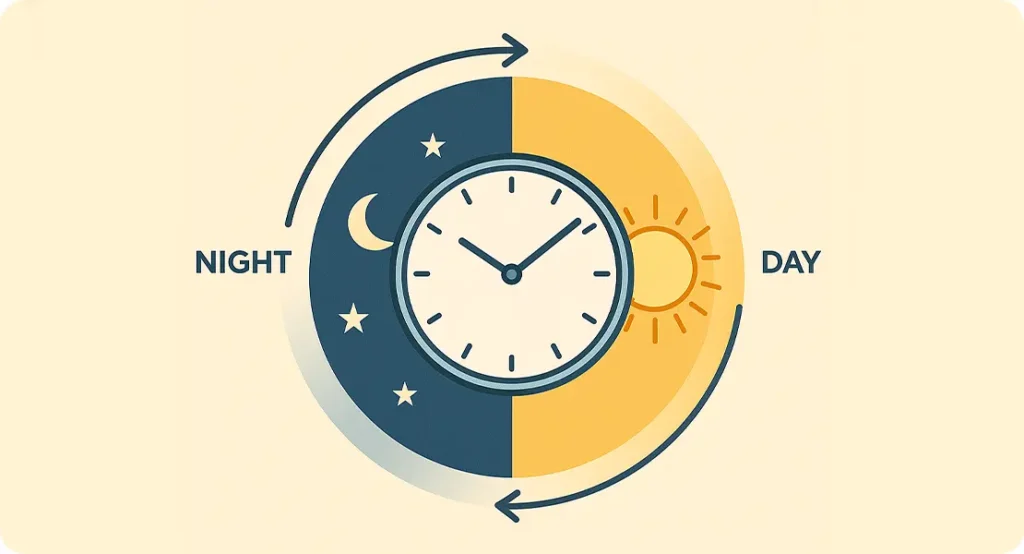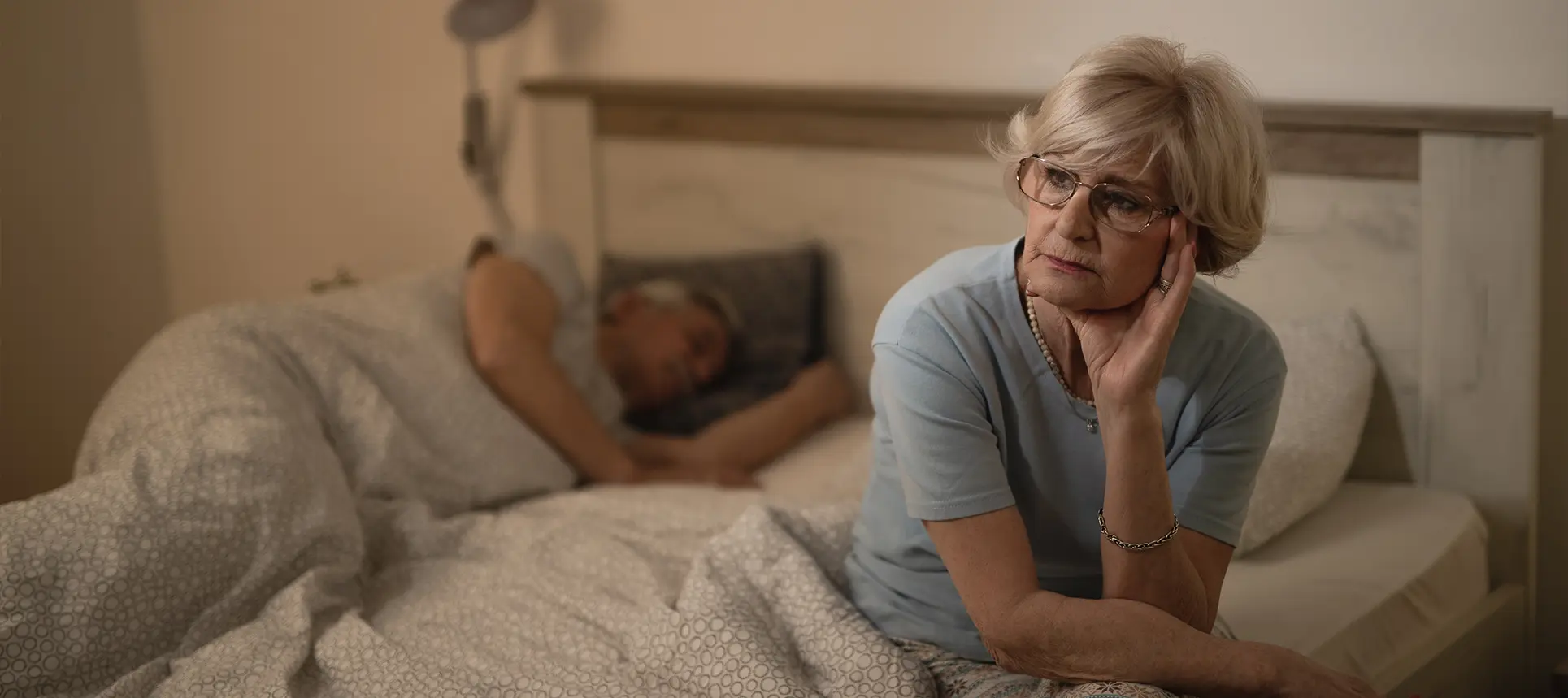When most people think about cataracts, they picture the gradual blurring of vision or difficulty seeing at night. And yes, those are hallmark symptoms. But there’s something else that cataracts can disrupt, and it’s a lot less obvious: your sleep.
You might not associate your eyes with your sleep cycles, but there’s a direct link—especially when it comes to how your brain interprets light. That light doesn’t just help you see; it also keeps your body clock in sync with the world around you. So, when cataracts cloud your lens and limit how much light gets through, your internal rhythms can fall out of balance.
In this article, we’re going to dig into how cataracts can interfere with your sleep patterns, why this problem is more common in older adults, and what you can do to manage it. By the end, you’ll have a clearer understanding of how something going on in your eye might be quietly messing with your night’s rest.
Understanding the Link Between Light and Sleep
Let’s start with the basics. Light is a major regulator of our internal biological clock, known as the circadian rhythm. This 24-hour cycle governs everything from when we feel sleepy to when our digestive system wakes up.
A key part of this process is the hormone melatonin. Produced by the pineal gland, melatonin levels rise in the evening when the brain senses darkness, helping you feel drowsy. In the morning, natural light suppresses melatonin, waking you up and boosting alertness.
So how do your eyes come into play? Well, they don’t just send images to your brain. Specialised cells in the retina detect light and send signals to a brain region called the suprachiasmatic nucleus (SCN). That’s the master clock that keeps your body on track.
When less light reaches the retina—whether from staying indoors all day or from eye conditions like cataracts—these signals can weaken, throwing your circadian rhythm out of sync.
How Cataracts Interfere with Light Transmission
A cataract is a clouding of the eye’s natural lens, which sits behind the iris and helps focus light on the retina. Over time, the proteins in the lens begin to clump together, forming cloudy areas that scatter light.
This scattering not only affects clarity of vision but also the quality and amount of light that reaches the back of your eye. Think of it like trying to see the sun through frosted glass—it’s there, but it’s not coming through in the way it should.
As cataracts progress, they tend to block more of the blue light spectrum—the very part of light that plays a crucial role in regulating your internal clock. This means your body might stop receiving strong signals that it’s daytime, even when the sun is shining bright outside.
It’s particularly problematic in the elderly. Many older adults already have a naturally reduced sensitivity to light due to age-related changes in the eye. Add cataracts into the mix, and the drop in light reaching the retina can be significant.
Circadian Rhythm Disruption in Cataract Patients
When your circadian rhythm is disrupted, your sleep-wake cycle becomes irregular. You might find yourself struggling to fall asleep, waking up frequently during the night, or feeling excessively drowsy during the day.
Several studies have shown that older adults with cataracts report poorer sleep quality compared to their peers with clear lenses. These disturbances aren’t just about getting fewer hours—they’re about disrupted patterns. Light no longer acts as a reliable cue for the body to know when to wind down or wake up.

One reason for this may be the reduced exposure to blue light. This spectrum is key for suppressing melatonin during the day. If your brain doesn’t receive that signal, melatonin secretion may remain elevated during daylight hours and not rise properly in the evening, resulting in delayed or fragmented sleep.
The problem is compounded in care home settings, where indoor lighting may be dim, and outdoor exposure is limited. For older adults in such environments with untreated cataracts, the impact on sleep can be even more pronounced.
Melatonin Levels and Cataracts: What’s the Connection?
Melatonin is often called the “sleep hormone” for good reason—it signals the brain that it’s time to rest. In people with cataracts, the reduced light input through the eye can cause a measurable change in how melatonin is regulated.
Some research has shown that after cataract surgery, melatonin rhythms improve. Patients often report better sleep, more energy during the day, and an overall improvement in quality of life. This strongly suggests that the lens opacity was interfering with melatonin cycles.
It’s a fascinating area of study because it shows how intricately connected your eyes are to your whole-body health. Cataracts don’t just dim your vision—they may also dim your biological clock.
There’s also evidence to suggest that people with cataracts might have a blunted melatonin suppression response. That means even when exposed to bright light, their bodies don’t effectively dial down melatonin production—leading to daytime sluggishness and nighttime wakefulness.
Sleep Disorders More Common in the Elderly with Cataracts
Sleep disturbances are already common in older adults, with issues like insomnia, fragmented sleep, early morning waking, and excessive daytime fatigue affecting a significant portion of the ageing population. But for those with cataracts, these problems may become even more pronounced. Cataracts limit the eye’s ability to absorb and process light, particularly in the blue spectrum, which is essential for regulating our internal body clock. When light signals are disrupted, the brain struggles to maintain a consistent sleep-wake cycle—resulting in nights of poor rest and days of low energy.

Even without cataracts, the ageing eye naturally undergoes changes that impair light sensitivity. The lens tends to yellow and thicken with age, reducing the amount of blue light that reaches the retina. This alone can weaken circadian rhythms, but the presence of cataracts compounds the problem. As the lens becomes increasingly clouded, the retina receives even less light stimulation, dulling the signals that help the brain differentiate between day and night. This sensory deprivation can throw the body’s internal clock off balance, leading to irregular sleep patterns.
One specific sleep condition that becomes more likely in the presence of cataracts is Advanced Sleep Phase Disorder (ASPD). This is where individuals feel an overwhelming urge to fall asleep very early in the evening—sometimes as early as 6 or 7 pm—and then wake up in the very early hours of the morning. ASPD is already more common with age, but cataracts can further disrupt circadian alignment, making the condition harder to manage. Without sufficient exposure to daylight during peak hours, the brain’s timekeeping mechanisms drift even further out of sync.
Another under-recognised symptom reported by older individuals with cataracts is an increase in vivid dreams or episodes of nighttime restlessness. These may indicate a disruption in the deeper stages of the sleep cycle, particularly REM sleep, which relies on stable circadian input. The brain, confused by a lack of proper light cues, may struggle to maintain orderly sleep architecture, leading to more frequent awakenings, unusual dream patterns, or an unrefreshed feeling upon waking. These experiences are not just random quirks of ageing—they’re signs that the body’s internal rhythm is out of tune and may need support to be brought back into alignment.
Cataract Surgery: Can It Restore Sleep Quality?
Interestingly, cataract surgery may do more than just restore vision—it may also help reset your internal clock. When the cloudy lens is replaced with a clear artificial one, more natural light (including blue light) can reach the retina again.
Multiple studies have found that older adults report better sleep after surgery. They fall asleep more easily, stay asleep longer, and feel more rested in the morning. Their melatonin rhythms also appear to return to a more normal pattern.
This improvement often comes as a pleasant surprise. Many people go into surgery expecting to see better—and come out sleeping better too.
If you’re an older adult with cataracts who’s also struggling with sleep, it may be worth discussing with your ophthalmologist whether surgery might benefit you beyond just vision.
Practical Tips to Improve Sleep If You Have Cataracts
Even if you’re not quite ready for surgery, there are steps you can take to improve your sleep despite cataracts:
- Maximise Natural Light Exposure: Try to spend more time outdoors during daylight hours. Even a 30-minute walk in the morning can help reinforce your circadian rhythm.
- Improve Indoor Lighting: During the day, keep curtains open and use full-spectrum or daylight bulbs to mimic natural light. At night, dim lights to encourage melatonin release.
- Stick to a Routine: Going to bed and waking up at the same time each day helps train your internal clock—even if your light perception is impaired.
- Limit Screen Time Before Bed: Blue light from screens may confuse your already disrupted rhythms. Consider using night mode or wearing blue-light-blocking glasses in the evening.
- Talk to Your Doctor About Melatonin Supplements: In some cases, short-term melatonin supplements can help reset sleep patterns, but they should be used with medical guidance, especially in older adults.
The Psychological Toll of Poor Sleep in Cataract Patients
When your sleep suffers, so does your mental health. Irritability, anxiety, low mood, and even cognitive decline can follow long-term sleep disruption.
For someone already dealing with vision impairment from cataracts, the additional strain of sleep deprivation can feel overwhelming. You may find it harder to stay focused, your motivation drops, and even simple daily tasks feel more difficult.
The emotional impact shouldn’t be underestimated. Treating cataracts—either medically or surgically—may offer a real boost not only to vision but to emotional resilience and daily wellbeing.
Could Cataracts Increase the Risk of Dementia via Sleep Loss?
Emerging research is shedding new light on the connection between chronic sleep disruption and cognitive decline, particularly in the context of ageing. Poor sleep has long been associated with impaired memory, reduced executive function, and a higher likelihood of developing conditions such as Alzheimer’s disease. Given that cataracts can interfere with light perception and circadian rhythms, it’s natural to ask whether they could also play an indirect role in increasing the risk of dementia. This is especially relevant for older adults, who are already vulnerable to both cataracts and neurodegenerative changes.
Cataracts reduce the eye’s ability to transmit light—particularly blue light, which is crucial for regulating melatonin production and the sleep-wake cycle. When sleep becomes fragmented or misaligned due to impaired light cues, it can affect how the brain clears toxins and consolidates memory. The glymphatic system, which is believed to help flush waste products like beta-amyloid from the brain during deep sleep, may not function as effectively in people who aren’t getting sufficient rest. Over time, this could lead to a buildup of these harmful substances, potentially accelerating cognitive decline.

Some researchers have started to explore the idea that cataract surgery could offer more than just visual restoration—it may also benefit cognitive health by improving circadian regulation. When the cloudy lens is replaced with a clear intraocular lens, more blue light reaches the retina again, potentially helping to reset the body’s internal clock. Several small-scale studies have reported that patients experience not only better sleep post-surgery, but also improved mood and cognitive function. While these studies are still early and require larger, long-term trials to draw firm conclusions, the results are promising.
In the meantime, this growing body of evidence reinforces the importance of taking eye health seriously—not only to preserve vision but also to support overall wellbeing, including brain function. If cataracts are contributing to poor sleep, addressing them could have broader health benefits than once thought. For those at risk of dementia or already noticing cognitive changes, it may be worth discussing with a healthcare provider whether treating cataracts could be one part of a wider strategy to protect brain health. Sleep, vision, and cognition are more interconnected than we once assumed—and paying attention to all three could make a real difference.
Final Thoughts: Looking Beyond the Eyes
Cataracts might seem like a purely visual issue, but their impact goes far beyond what you see. By interfering with how your brain processes light, they can disrupt sleep, hormonal rhythms, mood, and even cognitive health.
If you’re experiencing poor sleep and have cataracts, it’s worth exploring the connection further. Speak to your GP or eye specialist. Sometimes, the key to better sleep is clearer sight. If you are concerned about cataracts and would like to book a private consultation in London with one of our expert cataract surgeons, then feel free to get in touch with us at The London Cataract Centre.
Your eyes don’t just let you see the world—they help your body stay in rhythm with it. When cataracts get in the way, the effects can ripple through every part of your day—and night.
References
- Schmoll, C., Tendo, C., Laxar, K., Zeitlhofer, J., Dorffner, G. and Saletu, B., 2011. Impact of cataract surgery on sleep and quality of life in elderly patients: A prospective study. Sleep and Breathing, 15(4), pp.699–704.
Available at: https://link.springer.com/article/10.1007/s11325-010-0408-6 - Turner, P.L. and Mainster, M.A., 2008. Circadian photoreception: ageing and the eye’s important role in systemic health. British Journal of Ophthalmology, 92(11), pp.1439–1444.
Available at: https://bjo.bmj.com/content/92/11/1439 - Ayaki, M., Negishi, K., Kawashima, M., Kozaki, T., Kamei, M., Tsubota, K. and Ishida, K., 2013. Improved sleep quality and neuropsychiatric symptoms after cataract surgery. Clinical Interventions in Aging, 8, pp.679–685.
Available at: https://www.dovepress.com/improved-sleep-quality-and-neuropsychiatric-symptoms-after-cataract-su-peer-reviewed-article-CIA - Haimov, I. and Lavie, P., 1997. Melatonin and aging: Implications for sleep and circadian rhythms. Ageing Research Reviews, 1(3), pp.255–265.
- Giménez, M.C., Beersma, D.G.M., Bollen, P., Wallace-Gomez, C. and Gordijn, M.C.M., 2010. Effects of artificial dawn on subjective ratings of sleep inertia and dim light melatonin onset. Chronobiology International, 27(6), pp.1219–1241.
Available at: https://www.tandfonline.com/doi/abs/10.3109/07420528.2010.489874

